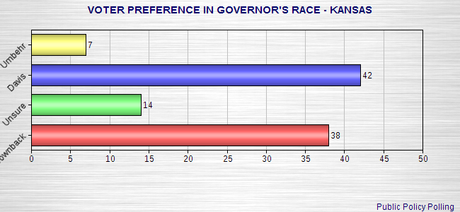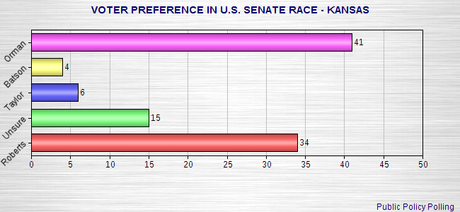
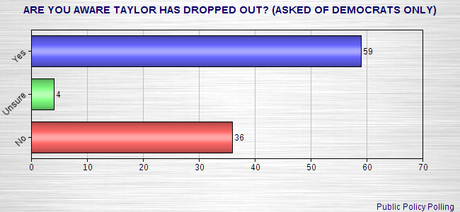
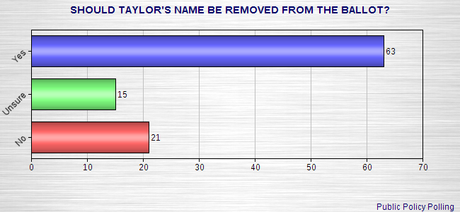
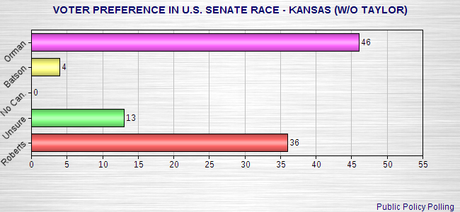
This is something the Republicans, both in Kansas and on the national level, didn't expect. Kansas is normally a reliably Republican state, and most pundits thought the GOP could rather easily hang on to the senate seat in that state. But it's certainly not working out that way.
The Democratic candidate (Taylor) saw he was running third (behind both incumbent Republican Roberts and Independent candidate Orman), and since he didn't have the funding to try and fix that, he dropped out of the race to give the Independent a better chance -- and that has worked. Even if Taylor's name stays on the ballot, Orman now has a 7 point lead over Roberts (41% to 34%).
This has scared the heck out of Kansas Republicans, and their Republican Secretary of State ruled that Taylor's name could not be removed from the ballot. They know their only real chance to win is to split the Democratic and Independent vote. But a few days ago, the Kansas Supreme Court ruled in favor of Taylor and said his name must not be included on the ballot. The GOP is trying to find a way around that, but if they do they'll just anger Kansas voters -- since 63% of them agree that Taylor's name should not be on the ballot.
Without Taylor on the ballot, Orman's lead over Roberts stretches to 10 points (46% to 36%). That's a huge lead to try and overcome with only six weeks left before election day.
And that's not the only problem facing Kansas Republicans. Their candidate in the governor's race (incumbent Brownback) is trailing his Democratic opponent (Davis) by about 4 points (42% to 38%). That's a smaller deficit to make up than in the senate race, but it's still a significant lead (exceeding the poll's margin of error). It's conceivable that the GOP could lose both races.
All of these charts were made from information in a new Public Policy Polling survey. That survey was done between September 11th and 14th of a random sample of 1,328 likely Kansas voters, and has a margin of error of 2.7 points.
